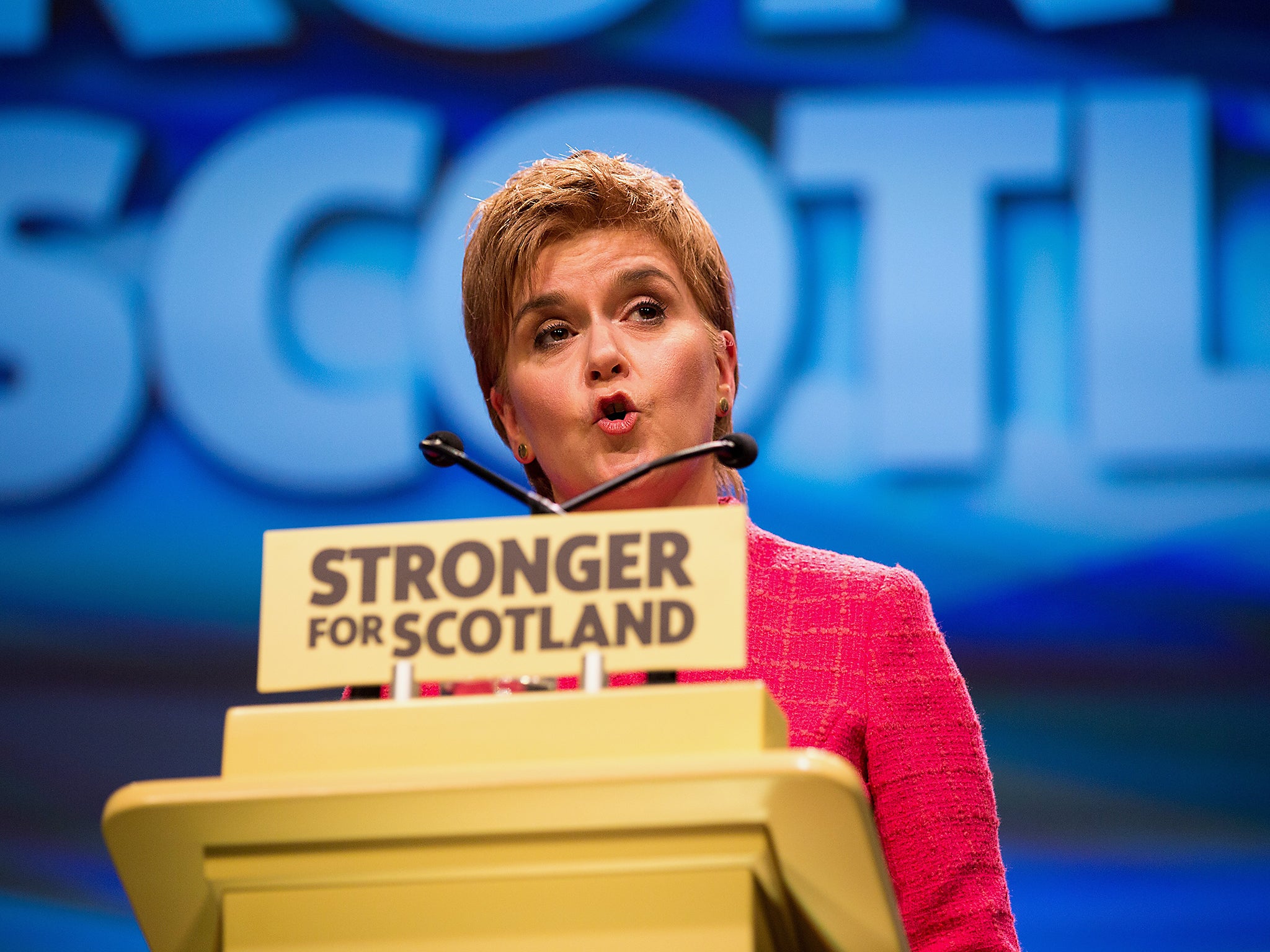Scottish people split over independence referendum before Brexit, poll suggests
It comes against the backdrop of a constitutional stand-off between Theresa May and Nicola Sturgeon, as the Scottish First Minister renewed her assault on Downing Street’s ‘intransigence’ and indifference to Scotland

Your support helps us to tell the story
From reproductive rights to climate change to Big Tech, The Independent is on the ground when the story is developing. Whether it's investigating the financials of Elon Musk's pro-Trump PAC or producing our latest documentary, 'The A Word', which shines a light on the American women fighting for reproductive rights, we know how important it is to parse out the facts from the messaging.
At such a critical moment in US history, we need reporters on the ground. Your donation allows us to keep sending journalists to speak to both sides of the story.
The Independent is trusted by Americans across the entire political spectrum. And unlike many other quality news outlets, we choose not to lock Americans out of our reporting and analysis with paywalls. We believe quality journalism should be available to everyone, paid for by those who can afford it.
Your support makes all the difference.Scotland is split over whether Theresa May is right to block a second independence referendum while Britain negotiates its exit deal with the European Union, according to a new poll for The Independent.
The survey comes against the backdrop of a constitutional stand-off between the Prime Minister and Nicola Sturgeon, the Scottish First Minister, who renewed her assault on Downing Street’s “intransigence” and indifference to Scotland.
Pollster ComRes found that 44 per cent of Scottish respondents agreed with the statement: “Theresa May should insist that any second Scottish referendum on independence takes place only once Britain has concluded the process of leaving the EU”. But 48 per cent disagreed and 8 per cent said they didn’t know.
Respondents in England and Wales supported the Prime Minister – 60 per cent said she was right to refuse a second referendum while negotiations with the 27 other EU states are under way; 21 per cent said she was wrong.
Ms Sturgeon insisted she had been forced into calling the referendum by Ms May’s “intransigence”. She also warned Downing Street’s approach and its indifference to Scotland spelt problems for the UK in its imminent negotiations with the EU.
Addressing the party faithful at the SNP’s spring conference in Aberdeen, she added: “The Prime Minister’s attitude should worry all of us hoping that negotiations with Europe will not be a disaster because – and let me put it bluntly – if she shows the same condescension and inflexibility, the same tin ear, to other EU countries as she has to Scotland then the Brexit process will hit the rocks.”
While Ms Sturgeon is still yet to secure a vote in the Holyrood Parliament for a Section 30 notification, which is required for a referendum to take place – the First Minister was met with a rapturous applause as she insisted: “There will be an independence referendum”.
She also welcomed discontented citizens from the England and Wales to move to Scotland.
“Scotland isn’t full up,” she said. “If you are as appalled as we are at the path this Westminster Government is taking, come and join us. Come here to live, work, invest or study. Come to Scotland and be part of building a modern, progressive, outward-looking, compassionate country.”
Her comments came just hours after Gordon Brown, the former Labour Prime Minister, unveiled a blueprint for post-Brexit Scotland that he hopes will sway voters towards remaining in the UK if a second referendum vote takes place.
In a keynote speech, Mr Brown, whose intervention in the 2014 referendum is credited with influencing the outcome, outlined a “third option” for Scotland. He called for Holyrood to be handed a raft of powers after Brexit, including the ability to set VAT rates, sign international treaties, and regulate the environment, employment and energy.
He also demanded the repatriation to Scotland of £800m now spent by the EU and proposed the Bank of England becomes the Bank of England, Scotland, Wales and Northern Ireland to “reinforce the fact that the pound is for everyone”.
He added: “The third option, a patriotic Scottish way and free from the absolutism of the SNP and the do-nothing-ism of the Tories, is now essential because post-Brexit realities make the status quo redundant and require us to break with the past.
“The status quo has been overtaken by events because unless powers now with the European Union are repatriated from Brussels to the Scottish Parliament, the Welsh Assembly and the regions, Whitehall will have perpetrated one of the biggest power grabs by further centralising power.
Responding to Ms Sturgeon’s surprise announcement last week that she will seek a second vote on Scottish independence, Ms May, however, effectively moved to block it, saying “now is not the time” for another vote.
She said it was not appropriate because the country was about to go through huge constitutional and political change in terms of Brexit, and that the Scottish people needed a fuller picture before making any decision on independence.
ComRes interviewed 2,026 GB adults, including 185 in Scotland, online between 15 and 17 March 2017. Data were weighted to be representative of all adults. Data were also weighted by past vote recall. ComRes is a member of the British Polling Council and abides by its rules
Join our commenting forum
Join thought-provoking conversations, follow other Independent readers and see their replies
Comments